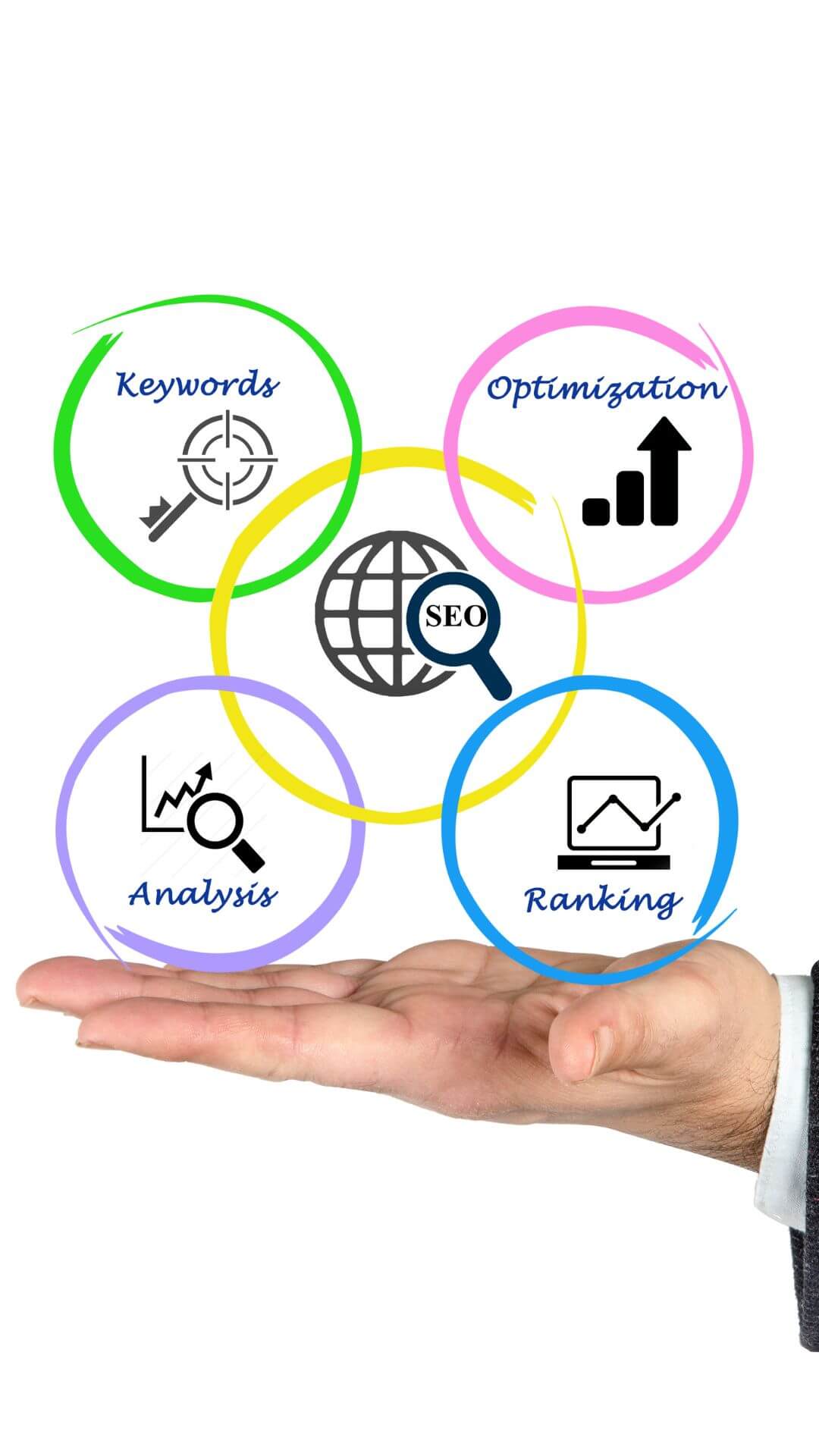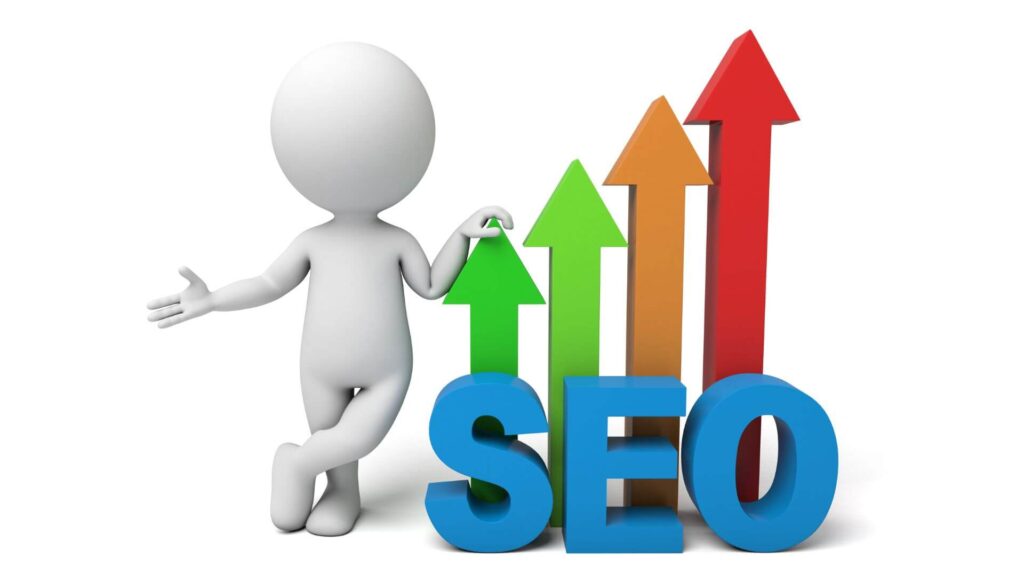Do you find yourself asking why certain websites always top the search results, while others don't? That's the magic of webpage ranking at work. Webpage ranking refers to a site's position in a search engine's results page. In an increasingly digital world, your website's ranking can make or break your business. It's a digital representation of your business's visibility and credibility. The higher your website ranks, the more likely it is to be seen and trusted by potential customers. Having a comprehensive understanding of webpage ranking not only illuminates your online standing but also offers the key to unlock unparalleled growth and success in the digital landscape. Join us as we dive deeper into the riveting world of webpage ranking.
Follow us on Instagram

I. How Webpage Ranking Works
Think of webpage ranking as a digital sorting system. The internet is like a huge library and each webpage is a book. Search engines, such as Google, are the librarians who arrange the books. They use specific rules, called algorithms, to decide the order. Here's what they look at:
• Relevance: Does the webpage answer the question asked in the search? This is determined by the content of the page, especially the use of keywords.
• Authority: Is the webpage a trusted source? This is often judged by the number and quality of other pages linking to it.
• Usability: Is the webpage easy to read and navigate? Factors like load speed and whether it looks good on mobile devices matter here.
Search engines' job is to sift through the billions of webpages out there and showcase the ones that best meet these criteria whenever someone types in a search query. Just like in a real popularity contest, the ones that tick all the boxes get to stand in the spotlight at the top of the search results!
II. Importance of Keywords in Webpage Ranking
Under the umbrella of webpage ranking, keywords play a central role. They are the connectors, linking what people are searching for to the content that fulfills their needs. Let’s break it down:
1. Keywords as Guides: When users type queries into search engines, they use specific words or phrases – these are keywords. They guide the search engines to relevant webpages. The better your keywords match with what people are searching for, the higher the chances your webpage will be ranked.
2. Keyword Selection: Choosing the right keywords is a blend of art and science. It requires understanding your audience and what search terms they use. Tools like Google Keyword Planner or SEMrush can help identify popular search terms related to your business or content.
3. Keyword Placement: Once you’ve selected your keywords, you need to strategically place them in your content. While they should be present in your webpage’s title, meta description, and headers, they also need to be peppered throughout your content naturally and contextually.
Remember, though, search engines are smart! They penalize for keyword stuffing (overusing keywords), so always strive for a balance between using relevant keywords and maintaining high-quality, readable content. Through astute keyword selection and placement, you’ll become more visible to the algorithms, and by extension, to potential site visitors.

III. Role of Quality Content in Webpage Ranking
In the pursuit of online prominence, one element stands king – quality content. This serves as the lifeblood of your webpage, the core magnet pulling in visitors and impressing search engine algorithms. But, what does ‘quality content’ mean? Let’s dissect:
1. Originality: Search engines value original, unique content. They’re like savvy readers, preferring a fresh novel over a repeated story. Copying content from other sites can lead to penalties and plummeting rankings. Crafting content that’s authentic and unique to your website is key in climbing up the search engine ladder.
2. Engagement: Search engines measure how users interact with your content. If your webpage keeps users engrossed, reducing the bounce rate (people leaving quickly), it signals the content is valuable, boosting your keyword rankings. This involves a mixture of appealing visuals, intriguing headings, clear structure, and most importantly, insightful, engaging text.
3. Consistent Updates: A stagnant webpage can be seen as irrelevant over time. Regularly updated content suggests your site is well-maintained and current. Think of it as a garden – regular watering (content updates) keeps it lush, catching the eye of passerby (search engine algorithms).
Quality content is not just about pleasing the algorithms, though. It’s about delivering value to your audience, establishing your webpage as a trusted, reliable resource. This dual benefit is why quality content is a cornerstone of high webpage rankings.

IV. Backlinks and Webpage Ranking
Navigating the digital ocean, webpages are interconnected like a vast network of islands linked by bridges – these bridges are what we call backlinks. The presence and quality of these links are critical determinants in the grand game of webpage ranking. Here’s how it works:
a. Influence on ranking: When another website links to your webpage, search engines see it as a vote of confidence, a nod of approval. It signals that your content is valuable and relevant, worthy of reference. The more high-quality backlinks you have, the higher your webpage can climb in the rankings.
b. Acquiring quality backlinks: The question then arises – how do you build these bridges? The key is in crafting content that others find valuable enough to link to. Participating in relevant forums, collaborating with industry influencers, and guest blogging can also be effective strategies. Remember, not all backlinks are created equal. A link from a reputable, high-traffic website carries more weight than one from an obscure, rarely-visited site.
Backlinks are like recommendations in the digital realm. They boost your webpage’s credibility and visibility, serving as vital tools in your webpage ranking toolbox.
V. Technical Aspects of Webpage Ranking
Unveiling the curtain to the more technical side of webpage ranking, we find a world where the intricate gears of technical SEO mesh together to create a well-oiled ranking machine. Two primary components underpinning this mechanism are:
a. Technical SEO: Like a car needs a well-tuned engine to race to the front, your webpage needs sound technical SEO to sprint up the search engine results. Site speed is crucial – internet users are notoriously impatient, and search engines know this. A slow-loading site can see potential visitors bouncing away, affecting its ranking. Additionally, with the mobile internet usage soaring, having a mobile-optimized site is a necessity. Lastly, incorporating schema markup can help search engines understand your content better, enhancing your visibility.
b. Website security: Search engines are the guardians of the internet realm, and they value user safety. A secure HTTPS website reassures users and search engines alike that the site is trustworthy, contributing to a better ranking.
Navigating the technical terrain of webpage ranking might feel daunting, but it’s a vital part of the journey to the summit of search results. Understanding and implementing these factors can provide the necessary thrust to propel your webpage higher in the rankings.

VI. User Experience and Webpage Ranking
Google’s Core Web Vitals are a set of specific website performance metrics that focus on user experience. These metrics include loading speed, interactivity, and visual stability. Google considers these factors crucial in determining how users perceive and interact with a webpage. Optimizing your website to meet these Core Web Vitals can positively impact your webpage’s ranking on search engine results pages (SERPs) and improve the overall user experience.
User engagement metrics, such as bounce rate and dwell time, also play a significant role in webpage ranking. Bounce rate represents the percentage of visitors who leave a webpage without interacting further, while dwell time refers to the amount of time users spend on a webpage before navigating away. Search engines like Google consider these metrics as indicators of the quality and relevance of a webpage. A low bounce rate and longer dwell time signal to search engines that users find the content valuable and engaging, leading to potential improvements in search rankings.
VII. Monitoring Your Webpage Ranking
Keeping an eye on your webpage ranking is essential for understanding your online presence and optimizing your digital marketing strategy. Here are some key points to consider:
a. Overview of tools for tracking webpage ranking:
Various tools are available to help you monitor your webpage ranking. Google Search Console provides valuable insights into your website’s performance, including keyword rankings and search traffic data. Additionally, third-party tools like SEMrush, Ahrefs, and Moz offer comprehensive rank tracking features to monitor your position on search engine results pages (SERPs). These tools provide valuable data to analyze your SEO efforts and make informed decisions.
b. Importance of regular monitoring:
Regularly tracking your webpage ranking allows you to gauge the effectiveness of your SEO strategies and identify areas for improvement. By monitoring changes in your rankings, you can assess the impact of your optimization efforts and adjust your strategy accordingly. This data-driven approach helps you stay proactive and adapt to the ever-changing search landscape.
c. Adapting your strategy based on data:
Monitoring your webpage ranking provides valuable data insights that can guide your decision-making. By analyzing the performance metrics and identifying patterns or trends, you can make data-backed decisions to optimize your content, keywords, and overall SEO strategy. This iterative process enables you to refine your approach and improve your webpage’s visibility and organic traffic.
Regularly monitoring your webpage ranking using tools like Google Search Console and third-party rank tracking tools empowers you to stay informed, adapt your strategies, and enhance your online presence. By leveraging data-driven insights, you can make informed decisions to improve your search rankings and drive more organic traffic to your website.
VIII. Conclusion
In this article, we covered important aspects of monitoring and improving your webpage ranking. We discussed the tools available for tracking rankings, the significance of regular monitoring, and the importance of adapting strategies based on data. By understanding these key points, you are better prepared to navigate the world of search engine optimization (SEO) and enhance your online presence. A higher ranking translates to better online visibility, increased organic traffic, and the potential for business growth. To achieve this, consider working with a professional SEO agency that has the expertise and experience to optimize your website effectively. They can guide you through the ever-changing landscape of SEO and help you stay ahead of the competition. Additionally, stay updated with the current web page ranking trends and algorithm changes. Continuously educate yourself on the latest SEO practices and techniques to ensure that your website remains optimized for search engines. By staying proactive and adapting to the evolving SEO landscape, you can improve your webpage ranking and maximize your online visibility.

Blog
Recent Posts
Blog
Recent Posts

Content

Digital Marketing





Recent Comments